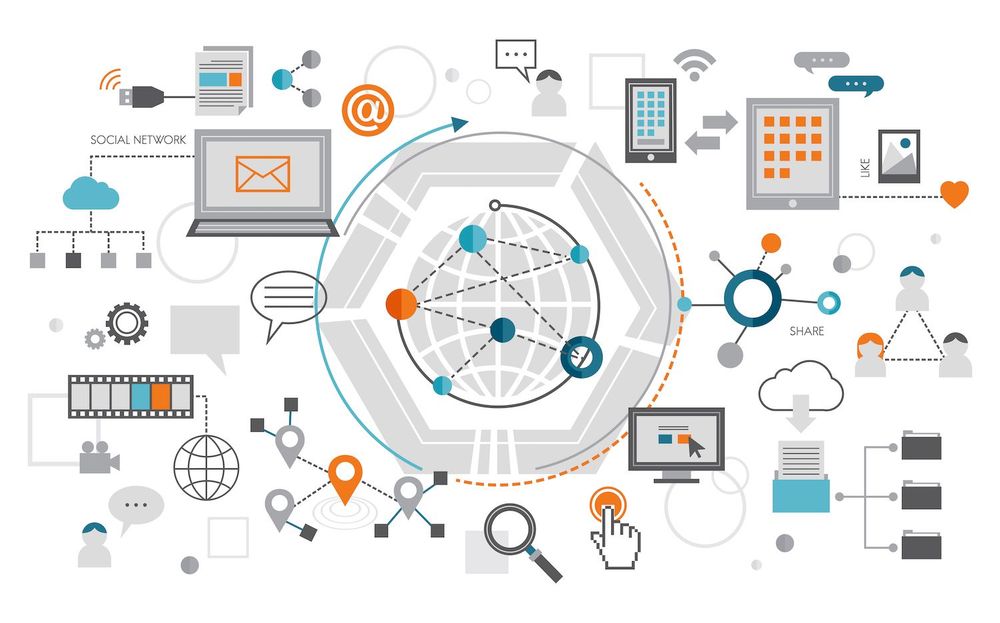What exactly is does The Knowledge Economy (and Why Should you care about it)?
It's not a secret that the economic landscape has changed in the last few years since the onset of the pandemic. Eliminating brick and mortar businesses as well as shifts to work online and education, along with the emergence of a labour shortage have led to an entirely different environment than prior to the COVID. But, along with this change come fresh opportunities, particularly for entrepreneurs.
- What exactly is knowledge economy?
- Where do we see the future of knowledge-based economy?
- The know-based economy in action
- Creators of courses
- Technology agencies, companies as well as consultants
- What can you gain from the economics of knowledge?
What exactly is the concept of the knowledge economy?
Knowledge-based economies (KDE) is an economic model in which the primary product is knowledge rather than physical products.
This means that instead of only placing worth in the sales and purchase of physical goods (like automobiles, shoes, or shoes) The value of the product is placed on innovation, knowledge or discovery and any other capital intellectual (like IT infrastructure, branding research, even consultancy).
The idea that of "knowledge economy" is a concept that has existed since the mid 1950s but began to gain prominence during the latter half of the 1980s and into the early 2000s. The knowledge economy was about research and development and the growing need for science-based innovations.
A sign of the significance to innovation was the rise in the number of patents granted to the United States Patent and Trademark Office (USPTO). In the year 1981, it was reported that the USPTO granted patents to 71,114, as compared to 187,053 patents in 2003. The most recent time, in 2021, 374,006 patents were granted, showing no sign of innovation slowing down into the next decade.
The economy of knowledge has grown into a huge element of the world economy, which has millions of people working in fields which include design, engineering for customer experience and education, to name just a handful. Value is highly placed on tangible assets, such as branding, software in addition to patent-pending designs.
The World Bank Institute outlines four aspects that are crucial in order for the economy of knowledge to thrive.

1. Structures that offer incentives to entrepreneurs and promote the use of information
For instance it is for instance, the US government is a big supporter of small-business innovations by way of their Small Business Innovation Research program. This program promotes entrepreneurship in addition to research through grants ranging from $150,000 to 1,000,000. The aim of the program is to foster technology-driven innovation and assist the "United US develop an entrepreneurial mindset as it meets its particular requirements for research and development."
2. A pool of highly skilled employees and an education system that is highly developed
3. Effective innovation systems for businesses as well as research centers, colleges, consultants as well as other organisations
It can refer to any non-governmental institution which encourages the development of new ideas, such as research laboratories or think tanks. For instance , it's CERN. European Organization for Nuclear Research (CERN) includes over 12200 scientists in 70 nations and is one of the most highly regarded Physics lab in the world. CERN is a leader in research and development worldwide. It also built the world's largest and most effective particle accelerator in 2018.
4. Information and communication technologies (ICT) infrastructures
The first thought that comes to the mind is Google. Through Google people have the ability to respond to every query with the swipe of their fingers through phones, tablets, or even laptops. Also, they have the option of communicating via chat or email. Internet and search engines allow access to information infrastructure available worldwide.
What is the future of a knowledge-based economy?
Today, more than 70 percent of the patents granted as well as the creation of scientific and technical papers are done by developed countries. There is a distinct difference between developed and developing nations in the knowledge economy.
However, that doesn't mean that developing nations can't benefit from the economy of knowledge. Because of the internet and an array of options to learn and earn cash online, there's an opportunity that is greater than ever. People in emerging countries are able to profit from the global network of information in order to improve their chances of being successful.
It's not to say that agriculture and the industry are going to disappear any time in the near future. It is necessary for automobiles, shoes, furniture appliances and lots more. Also, of obviously, we require food. The information economy could be an excellent way for entrepreneurs to make money - and sometimes help other people along the way.
If information becomes more accessible The market of information is predicted to keep expanding. This means that this is the perfect opportunity to be involved and earn a profit.
The Knowledge Economy in Action
This is how we've identified the nature of the knowledge economy, and where it might be heading. What are they, and what are they currently working on?
It's likely that you've seen the most well-known businesses operating in the world of information. We've previously discussed Google however Amazon along with Apple well as Apple are outstanding examples. These companies all harness the power of information in order to deliver amazing new ideas. They have changed the way you shop online, to the Virtual Assistants Siri, Alexa, and Google Home, to books as well as reading online.
It's not easy to relate to these massive companies where thousands of employees are working towards the corporation's development and growth. Many smaller entrepreneurs and companies benefitting of the information economy as well as making their own progress. These are just a few of them:
Course Creators
Tonya Rapley, founder of myfabfinance.

Suzana Somers is the co-founder of BachelorData Academy

Suzana learned how to analyse data through watching the TV series The Bachelor. The experience was fun and led to Suzana creating an account on Instagram where she posted her findings from her study. It became so well-known that Suzana made the decision to start an analytics of data class to spread her expertise. It was featured in magazines such as Vanity Fair, and she's helped her students learn how to visualize data even without formal instruction on the subject. Because she shared her knowledge in an innovative manner that students immediately saw the value and would be willing to pay for her expertise.
One of the main reasons behind the rising popularity of knowledge-based business is that it's available to anyone and that a knowledge-based entrepreneur doesn't have become an authority, the status of a star or even the backing of an established company. In essence, they possess the skills, experience or enthusiasm that they wish to impart when they start or expand a business.
Greg Smith, Co-Founder and CEO
Companies, technology agencies as well as consultants
Although we are aware that creating online courses is a great method to earn money, there are other options as well.
Shopify customers Shopify wanted help with marketing their online shops, so Shopify released email marketing and Facebook Ad integrations to make that simpler. Shopify is an entirely new company that has transformed online shopping. Innovation and innovation have created Shopify the leading company in the marketplace, demonstrating the benefits of knowing the market.

Firms that offer consultancy services, such as design or marketing can also participate in the market for knowledge through selling their expertise to businesses. This could mean everything from helping companies improve their processes for organization, designing logos, to creating complete marketing strategies.
A different example is the tech startups that create apps or programs. The importance is placed on the foundation that codes and can be used to create software or applications as well as the brand and the idea. Each of them is an outcome of expert knowledge and innovation which are part of the economy of knowledge.
The examples above do not represent the only possibilities for participating in the knowledge economy. There are a lot of possibilities in terms of how you can make money.
What do you get through the business of knowledge?
The benefits of the information economy are felt by all across the globe. A higher price for information is an incentive to come up with new concepts, create, and share information. How can you personally benefit from the economy of knowledge?
Well, it depends upon the goal you're trying to achieve.
First thing you should do is consider what you the most as well as what topics you're already knowledgeable about. Are you a good writer? Offer your talents by taking a class, or perhaps a freelancing job through Fiverr or Upwork. Do you have a knack for cooking? You can create an online cookbook or even make instructional videos for cooking. There is a chance that you can create software and want to teach others how to code. So you create a bootcamp or even patents for the most current software for planning.
The point is clear. After you've decided what the scope of your expertise and knowledge set is, you just need to make it a profitable venture. A proven first step for that is to create an online class.
A course online with related items like Live lessons, ebooks along with memberships are an excellent way to break into the market of knowledge. If you're competent enough to perform a task effectively There's a market ready to pay for that you can offer through your knowledge.
What better way to test it to join the knowledge-based economy?
Subscribe to our newsletter
Subscribe to the latest blog posts straight to your inbox. Your email address Subscribe
You must enter an email address with a valid validity
Oops! There was an error sending the email, please try again.
Article was posted on here
